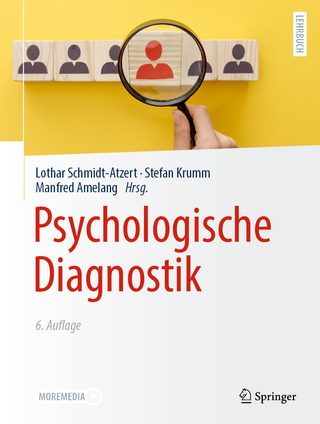
The Psychology of Criminal Conduct
Routledge (Verlag)
978-1-138-12882-8 (ISBN)
- Titel ist leider vergriffen;
keine Neuauflage - Artikel merken
In addition to senior undergraduate students, graduate students, and professionals in psychology, this book may be helpful to students and practitioners in the fields of social work, sociology, education, health, youth and family studies, criminology, and youth and adult justice. The book is also accessible to members of the general public who are interested in understanding antisocial behavior.
Resource notes throughout explain important concepts. Technical notes at the back of the book allow the advanced student to explore complex research without distracting readers from the main points. An acronym index is also provided.
The late D.A. Andrews was a noted criminologist affiliated with Carleton University throughout his academic career. His work on the psychology of criminal conduct produced what became known as the "theory of correctional intervention," which set the standard for successful intervention practices throughout the field of corrections worldwide. He was a founding member of Carleton’s Criminology and Criminal Justice Program and a Fellow of the Canadian Psychological Association. He received numerous awards for his work in the criminal justice field, including those from the American Probation and Parole Association, Correctional Service Canada, the International Community Corrections Association, and the American Society of Criminology. After his retirement, he remained active in the criminal justice field as a Professor Emeritus and Distinguished Research Professor. James Bonta served as Director of Corrections Research at Public Safety Canada from 1990 until 2015. He received his Ph.D. in Clinical Psychology from the University of Ottawa in 1979. Bonta was a psychologist, and later Chief Psychologist, at the Ottawa-Carleton Detention Centre, a maximum-security remand facility for adults and young offenders. Throughout his career, Bonta has held various academic appointments and professional posts and was a member of the Editorial Advisory Boards for the Canadian Journal of Criminology and Criminal Justice and Behavior. He is a Fellow of the Canadian Psychological Association, a recipient of the Association’s Criminal Justice Section’s Career Contribution Award for 2009, the Queen Elizabeth II Diamond Jubilee Medal, 2012, the Maud Booth Correctional Services Award, 2015, and the 2015 Community Corrections Award from the International Corrections and Prisons Association.
Part 1: The Theoretical Context and Knowledge Base to the Psychology of Criminal Conduct 1. An Overview of the Psychology of Criminal Conduct 2. The Empirical Base of PCC and the RNR Model of Assessment and Crime Prevention Through Human Services 3. Understanding Through Theory: Psychopathological, Psychodynamic, Social Location, and Differential Association Perspectives 4. A General Personality and Cognitive Social Learning Approach: The Personal, Interpersonal, and Community-Reinforcement (PIC-R) Perspective Part 2: The Major Risk/Need Factors of Criminal Conduct 5. Biological, Personal, and Social Origins of the Major Risk/NeedFactors and Personal Strengths 6. Antisocial Personality Pattern 7. The Role of Antisocial Associates and Attitudesin Criminal Conduct 8. The Person in Social Context: Family, School, Work, Leisure/Recreation, Marital Attachments, and Neighborhood 9. Substance Abuse Part 3: Applications 10. Prediction of Criminal Behavior and Classifi cation of Offenders 11. Prevention and Rehabilitation 12. Creating and Maintaining RNR Adherence: A Real-World Challenge 13. Getting Mean, Getting Even, Getting Justice: Punishment and a Search for Alternatives 14. Criminal Subtypes: From the Common to the Exceptional Part 4: Summary and Conclusions 15. A General Personality and Social Psychology of Criminal Conduct: Summary and Conclusions
| Erscheint lt. Verlag | 20.9.2015 |
|---|---|
| Verlagsort | London |
| Sprache | englisch |
| Maße | 178 x 254 mm |
| Gewicht | 635 g |
| Themenwelt | Geisteswissenschaften ► Psychologie |
| ISBN-10 | 1-138-12882-1 / 1138128821 |
| ISBN-13 | 978-1-138-12882-8 / 9781138128828 |
| Zustand | Neuware |
| Haben Sie eine Frage zum Produkt? |
aus dem Bereich


